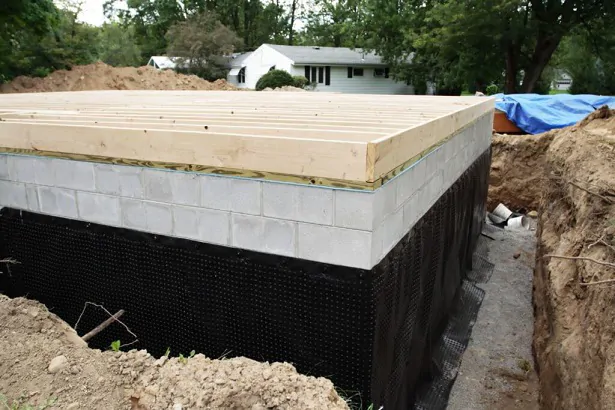The Vital Importance of Basement Waterproofing
Basements are an integral part of any residential or commercial property, providing valuable space for storage, recreation, or even living. However, one aspect that often goes overlooked is the importance of basement waterproofing. An improper or neglected waterproofing system can lead to a plethora of issues that can compromise the integrity of the entire building structure. In this article, we will explore the vital significance of basement waterproofing, understanding its benefits, impact, and various methods used to ensure a dry and secure basement environment.
The Impact of Moisture on Basements
Moisture infiltration in basements can have far-reaching consequences, both on the structural stability of the building and the health and well-being of its occupants. When water seeps into the basement, it can create a damp and humid environment ideal for the growth of mold, mildew, and fungi. These can not only damage the building materials but also trigger respiratory issues and allergies in occupants.
Furthermore, excessive moisture can deteriorate the foundation walls and floors, leading to cracks, efflorescence, and even structural weaknesses. Over time, the structural damage caused by water infiltration can compromise the entire building's stability and reduce its lifespan significantly.
The Benefits of Basement Waterproofing
Basement waterproofing is a proactive measure taken to prevent water intrusion and effectively manage moisture levels. By investing in basement waterproofing, property owners can enjoy a host of benefits that safeguard their structural investment and enhance the overall quality of the living or commercial space.
1. Protection Against Water Damage
The most obvious benefit of basement waterproofing is the protection it provides against water damage. A well-designed and properly executed waterproofing system prevents water from seeping into the basement, keeping the space dry, and safeguarding belongings stored within. By eliminating water penetration, property owners can avoid costly repairs and replacements that may arise due to water-related damages.
2. Enhanced Structural Integrity
Basement waterproofing plays a crucial role in ensuring the structural integrity of a building. By effectively managing moisture levels, waterproofing prevents the gradual deterioration of foundation walls, floors, and supporting structures. This safeguarding measure helps maintain the overall stability of the building and extends its lifespan, reducing the need for costly structural repairs down the line.
3. Improved Indoor Air Quality
Moisture infiltration in basements can contribute to poor indoor air quality, leading to an array of health issues. Mold, mildew, and other airborne pollutants thrive in damp conditions, releasing spores and toxins that can negatively impact respiratory health. Basement waterproofing promotes a healthier indoor environment by reducing humidity and preventing the growth of mold and mildew.
4. Increased Property Value
Investing in basement waterproofing adds significant value to a property. Prospective buyers are more likely to be attracted to a property with a dry and secure basement, free from the risk of water damage and mold growth. Waterproofing demonstrates conscientious property maintenance and can increase the overall market value when selling or renting a property.
Methods for Basement Waterproofing
Basement waterproofing is a specialized process that requires professional expertise and careful consideration of various factors, such as the type of foundation, soil conditions, and location. Here are some common methods used for basement waterproofing:
1. Exterior Waterproofing
Exterior basement waterproofing involves excavating the soil around the foundation to expose the exterior walls. A waterproof membrane or coating is then applied to the walls, providing a protective barrier against water infiltration. Additionally, a drainage system, such as a French drain, may be installed to divert water away from the foundation.
2. Interior Waterproofing
Interior basement waterproofing is performed from the inside of the basement. This method typically involves the installation of an interior drainage system, such as a perimeter drain or a sump pump system. The system collects and channels water away from the basement, preventing it from accumulating and causing damage.
3. Crack Injection
Crack injection is a common technique used to repair foundation cracks that contribute to water leakage. The process involves injecting a specialized epoxy or polyurethane material into the cracks, effectively sealing them and preventing water from seeping through.
4. Waterproofing Paints and Coatings
Waterproofing paints and coatings are often used as a secondary measure to enhance the effectiveness of other waterproofing methods. These specialized paints and coatings, applied to interior basement walls, create a moisture-resistant barrier that helps inhibit water penetration.
5. Exterior Grading
Ensuring proper exterior grading around the foundation is a fundamental aspect of basement waterproofing. The soil should be sloped away from the building, directing water to flow away from the foundation rather than pooling around it. Proper grading helps minimize water pressure against foundation walls, reducing the risk of water infiltration.
Conclusion
Basement waterproofing is not a luxury but a necessity for any property owner looking to protect their investment and ensure a safe and healthy living or working environment. By recognizing the importance of basement waterproofing and implementing appropriate measures, property owners can prevent water damage, maintain structural integrity, improve indoor air quality, and enhance property value. Whether it is through exterior or interior waterproofing methods, crack injection, or other preventive measures, basement waterproofing offers long-term benefits that far outweigh the initial investment. It is a critical step towards achieving a dry, secure, and sustainable basement space.

























